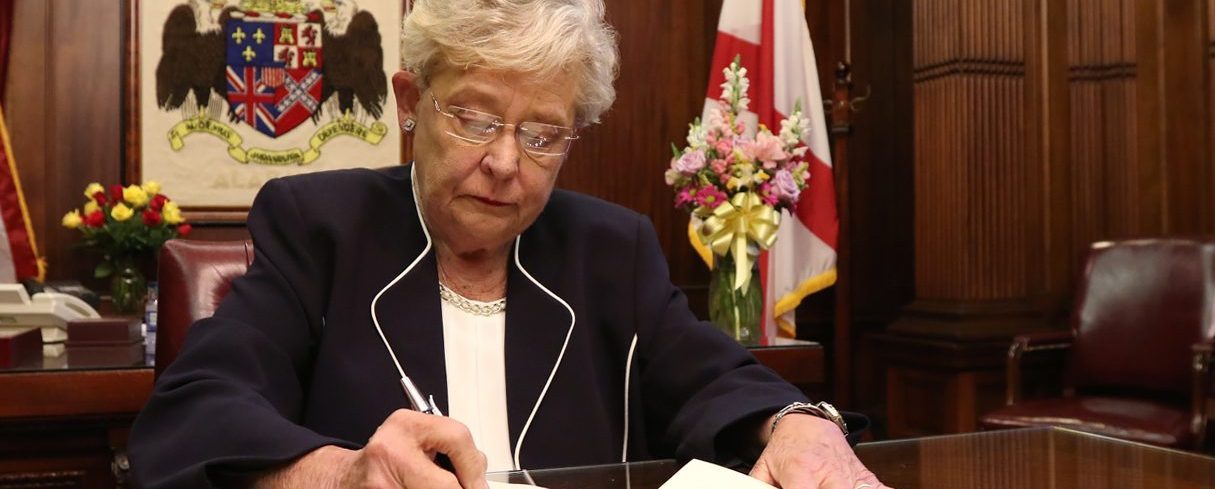By Chip Brownlee
Alabama Political Reporter
MONTGOMERY — Governor Kay Ivey may already be considering calling a Special Session to give lawmakers time to address one issue that didn’t make it the 2017 Legislative Session this year: prison construction.
At a press conference Friday, Ivey said she would consider calling a Special Session if Sen. Cam Ward’s prison construction bill didn’t make it through. It didn’t.
“The judge, Judge Thompson, is going to be ruling in the next few days and weeks, making his rulings and findings. Certainly, we are going to examine those things and see what he recommends and what that order contains,” Ivey said. “At the same time, calling a special session may very well be an option because we’ve got to meet the needs of the State and the needs the judge outlines.”
The plan to build four new “mega” prisons at a cost of up to $845 million died in the last two days of this Legislative Session, which ended Friday. The bill’s sponsor confirmed that to the Alabama Political Reporter Thursday.
On Friday, Ivey said she wasn’t sure the bill was dead so she wouldn’t make any announcements about a Special Session. She said she wanted to remain an “eternal optimist.” The bill was dead, though, and didn’t make it out of the House in time for Ivey to sign it.
The bill hit a brick wall in the House, which has been held hostage by on-and-off Democratic filibusters for the past week. Commotion over an email black lawmakers found offensive Tuesday also lessened the bill’s chances of getting to the floor for a vote.
Sources also told APR that the bill’s proponents may have also been working on a deal to bring the plan back up in a special session.
The death of the prison bill was largely the result of factionalization within the Republican caucus. GOP lawmakers became split between moderate and conservative voices who disagreed over the size of and methods within the plan, which would have authorized three new 4,000-bed regional men’s facilities and a 1,200-bed women’s facility.
Most Democrats, aside from a few, were also opposed to the bill. Instead, they called on the State to put the money elsewhere like pay raises for Correctional Officers and increasing mental health staff.
“I was optimistic that we could get a prison bill passed that could demonstrate to the court that this State is dead serious, pardon the pun, about making a difference to improve our prison structure — much less that health and safety of our staff,” Ivey said. “I think if we had passed a bill and sent it, it would have let the judge see a tangible example of the fact that we are serious.”
The plan was an effort to reduce severe overcrowding in Alabama’s prisons, which was verging on 200 percent capacity in the past few years. The Department of Corrections has pushed this plan as a viable way of reducing that severe overcrowding.
Ivey said she would move forward as she has to to get something done about the problems.
“It is what is is,” Ivey said. “If we have to have a Special Session, we’ll just have to have one.”
ADOC is facing an imminent ruling in a mental-health lawsuit filed by the Montgomery-based Southern Poverty Law Center. The SPLC also has a medical lawsuit that is waiting to go to trial in the next year. Ivey said she believes the Federal Courts have seen that lawmakers were diligent in trying to get a plan through even though this year’s bill failed.
“It’s been considered and worked on for some time, so I think he will take that into consideration as well,” Ivey said. “I’m optimistic that we can find a pathway to progress.”
The Federal Judiciary has shown increasing impatience with Alabama’s prison system. In recent years, conditions at Tutwiler Prison were so bad that a Federal court ruled them unconstitutional and ordered improvements. The US Department of Justice launched a larger investigation in 2015.
If Ivey called a Special Session on prisons, the issue would be Legislature’s sole focus. Any other unrelated issues would require a two-thirds vote to pass, making it unlikely for lawmakers to spend their time on other topics.
There were two Special Sessions in 2015 over the General Fund Budget and one in 2016 over Medicaid funding and a possible lottery.
Email Chip Brownlee at cbrownlee@alreporter.com or follow him on Twitter.















































